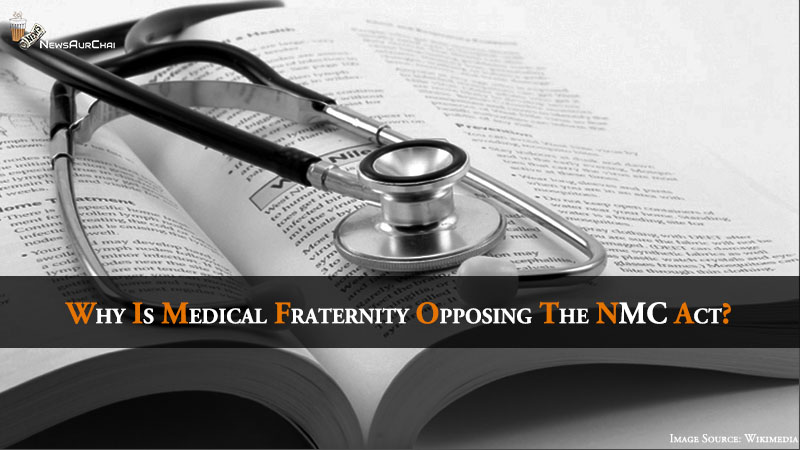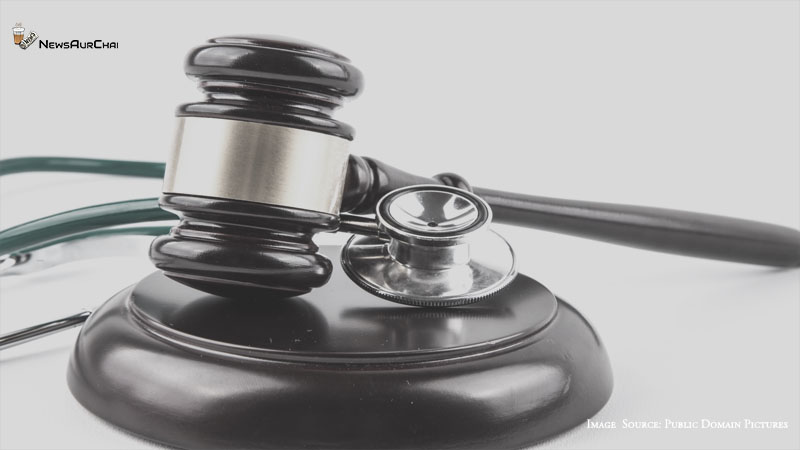
Dr Harsh Vardhan, Minister of Health and Family Welfare, introduced the National Medical Commission Bill on 22nd July 2019. The bill intended to revoke the Indian Medical Council Act, 1956. Medical Council of India (MCI), was suspended in 2010 following corruption charges upon its then-president Ketan Desai by the CBI.
What is NMC Bill?
NMC bill proposes the formation of the National Medical Commission, which will replace the Medical Council of India. It has been passed in the Rajya Sabha and obtained the presidential consent as well.
As per the bill, NMC will be a 25 member body. Out of which, 20 would be non-elected members, either government officials or those nominated by the government. Rest of the five members would be elected.

Dr Harsh Vardhan termed this bill as a notable reform of Narendra Modi Government. According to him, it will improve the quality of medical education and make it more affordable. It would also enhance the availability of health service providers.
However, all those engaged in the medical profession have vehemently opposed the bill. This includes medical students and doctors all over the country.
Reasons for Protests:
- Section 32 of the NMC bill seeks to provide a licence to 3.5 lakhs Community Health Provider or non-medical persons who fulfil the criteria as may be prescribed. However, they will be able to prescribe medicines only in the case of primary and preventive health care. Other than the said cases, they can prescribe medication only under the supervision of a medical practitioner registered under sub-section (1) of section 32.
Earlier there was a proposal stating clearing a bridge course for alternative medicine doctors could pursue allopathy. It attracted extensive criticism from medical fraternity across the country.
- One of the significant reasons for protest among medical students is NEXT (National Exit Test). Section 15 (1) of the bill states a common exam for all the MBBS aspirants for which they will appear in their final year. They will have to pass this exam in any case: whether they want to seek admission in postgraduate courses or they wish to practice medicine. In either case, the clearing of the exam will be a determining factor. It will also serve as a screening test for the international students who have come to India for higher education after completing their graduation from foreign universities.
- NMC will also be the regulating authority with regards to the fees and other charges in the private medical colleges and deemed universities. It will be authorised to do this for about 50% of their seats.
A massive protest has been seen in the entire country, and the medical fraternity threatened that it would intensify. The situation will only become worse if their demands are not accepted. However, as of now, there has been no statement by any government official about the changes in the bill.
Since it has received the president nod as well, any such action seems to have scarce possibilities. Whether the revamping will reap sweet fruits or will make them more bitter can be found only with time as the whole of the bill unfolds and comes into effect.
The results will be favourable only when the doctors accept this with open arms and welcome the move of the government for the better. Moreover, they will have to accept it, even if some of their demands are catered. So why not do it now and with happy hearts so that it reaps benefits and leads to no loss of anybody, be it the common man or the doctors themselves.





